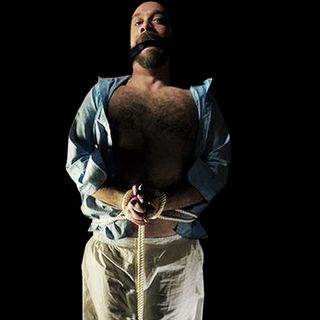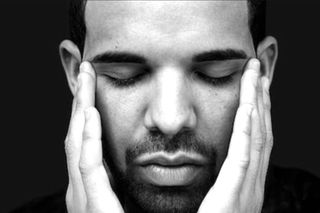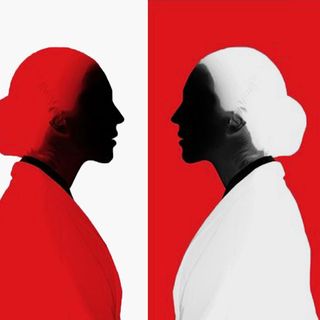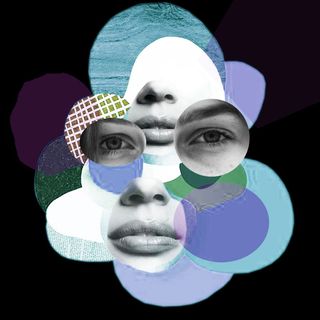
Drake’s Softboi Image Masks His Subtle Sexism
For Drake, a ‘good’ girl waits for him by the phone; a ‘bad’ girl wears short clothes and parties without him.

Aubrey Drake Graham has a very distinct brand identity that instantly launched him to fame, especially among female fans and people of color: he was not among the abrasive, aggressive rappers of decades past. He brings a seemingly self-aware understanding of privilege, wealth, diversity and relationships — all packaged perfectly together in lilting tunes that could at once make you introspect, sing along, and dance — guilt-free.
His brand is that of a very special type of cisgender, heterosexual man: the softboi, a sensitive, soft, pseudo-feminist, more palatable type of fuckboi (an unpredictable, inconsiderate and superficially charming man), whose red flags are only apparent when scrutinized carefully. For this reason, Drake, 32, remains relevant in our cultural consciousness even in 2019, while his past problematic deeds are masked behind this mama’s boy facade.
Not anymore. Most recently, Drake partnered with Chris Brown, whose reputation sunk after a now-settled 2009 felony assault case for physically assaulting his then-girlfriend Rihanna. Drake — who had famously declared his love for Rihanna — and Brown’s single, “No Guidance,” has been No. 1 on radio stations for weeks now. In choosing Brown, Drake has effectively sided with the man who assaulted his supposed love interest. This is not a surprise, given Drake’s previous defense of accused sexual assaulter and rapper Baka Not Nice, as well as his willingness to work with stylist Ian Connor, accused of sexual assault by multiple women. All of Drake’s feminist-adjacent messaging — replete with feelings, building women up, respecting relationships — turn out to be bollocks, as it becomes increasingly clear his actions do not match his words.
Started as a Degrassi: The Next Generation teen television actor, now Drake’s here: founder of his own record label, OVO; singer-songwriter or producer of hundreds of pop, R&B and hip-hop songs; topper of billboard charts and receiver of multiple Grammys. A lot of this fame survives even afterthe more problematic aspects of his life became public — a 2010 video that surfaced earlier this year shows the then 23-year-old rapper engaging with a 17-year-old girl on stage at one of his concerts. The video shows Drake slow-dancing with the girl while exclaiming at the smell of her hair and pulling down the back of her t-shirt to kiss the base of her neck. Later in the video, he wraps his arms around her chest from behind, saying that he’s “getting carried away.” Upon finding out that she is 17, Drake says, “I can’t go to jail yet, man!” He flips it back to her, berating: “Why do you look like that? You thick. Look at all this,” and “I don’t know if I should feel guilty or not, but I had fun. I like the way your breasts feel against my chest.” He then kisses her cheeks and forehead, to resounding cheers from the crowd.
Related on The Swaddle:
Salvaging the Michael Jackson Soundtrack of My Youth From the Predator Who Sang It
This lack of accountability and a pressing sense of entitlement has also peppered Drake’s work throughout. In “Hotline Bling,” he makes a clear distinction between ‘good’ girls and ‘bad’ girls. Of course, those who gave him attention and waited by the phone for his call are the good ones. Those who “started wearing less and going out more” are the ‘bad’ girls. This misogyny is also apparent in “Good Girls Gone Bad,” where he sings “where’s all the women that still remember who they slept with? Where’s all the girls too busy studying to make the guest list?”
There are also implications of Drake’s need to be the male savior in his girlfriends’ lives: “Every lost girl I know is over 26. Every lost girl I know is just too afraid to admit it,” he sings in Roy Wood’s “Drama”; “I got strippers in my life but they virgins to me,” in his own “Energy”; and “And she was acting like a virgin, I gave it to her then I curved her” in his “I’m The Plug.” Drake constantly raps about his ideal woman, coated in sweet, affirmative words and compelling melodies: she should be career-focused, be able to handle her own finances (such as in “Nice For What”), and is sexually liberated. But, she always needs Drake to ‘save her.’ Drake is all for women’s empowerment, as long as he can be the catalyst.
How are these details about his work, life, and music, evading his fans’ decision-making process? The answer lies in sugarcoated, benevolent sexism that is hard to identify, even harder to believe, and the hardest to condemn. We want to believe his message of respect, consideration, and equality — much like the softboi who passionately talks about consent, quotes Roxane Gay, seems considerate, but still gaslights and ghosts you — but underneath the facade is a dire lack of understanding of all that Drake supposedly stands for. Without deep understanding, his message will never be authentic. Without his imbibing the words he raps into his own life, he will never be believable.
This is also apparent in Drake’s romantic interests, rumored and otherwise — he tends to be seen publicly and to exchange affectionate messages with women a decade or more younger than he is. Stranger Things star Millie Bobby Brown has considered herself a good friend of Drake’s since she was 14, and has publicly said he texts her boy advice. Then, 19-year-old model Hailey Baldwin, and most recently, 18-year-old model Bella Harris, have also been rumored to date Drake after cozy photos of the couple made rounds on social media. All the ‘age is just a number’ rhetoric aside, Drake’s age and fame accord him a certain social power and capital that when exerted on young women falls undoubtedly, and at least, in the gray areas of creepy, if not in the jet black.
Drake’s interest in young women — while in typical softboi style, is full of encouragement and an unnecessary level of intimacy — is “a systemic issue in a society that has a surplus of men in power, as well as an abundance of women who have ambitions to be seen, to be understood, to attain power themselves within the existing societal structure,” entertainment writer Sandra Song writes for Nylon.
In his music, Drake extends the same courtesy to his listeners that he does his groom-able young female friends: he will talk about his feelings; he will be the relatable friend, the celebrity too overwhelmed with fame, who just wants to talk about the pitfalls of being rich. But this supposed self-awareness doesn’t exist in his real life, as extrapolated from his actions. He seems to know the language of wokeness and feminism, so much so that he has exempted himself from ever implementing it. And therein, folks, lies your ultimate pathetic, potentially predatory softboi.
Rajvi Desai is The Swaddle's Culture Editor. After graduating from NYU as a Journalism and Politics major, she covered breaking news and politics in New York City, and dabbled in design and entertainment journalism. Back in the homeland, she's interested in tackling beauty, sports, politics and human rights in her gender-focused writing, while also co-managing The Swaddle Team's podcast, Respectfully Disagree.
Related


Imposter Syndrome Isn’t Just a Feeling, But a Result of Societal Conditioning
